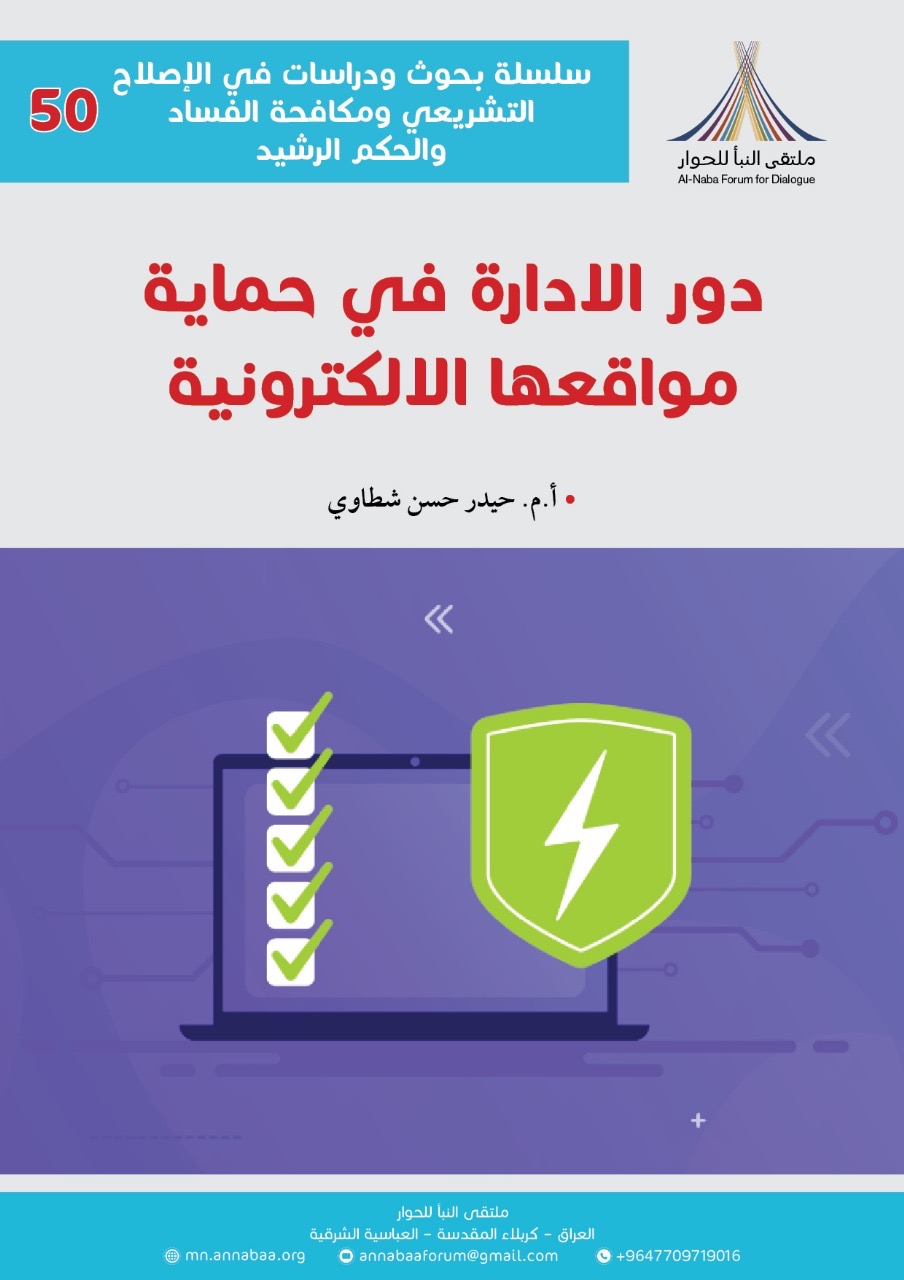The Al-Nabaa Forum for Dialogue has published a scientific research paper entitled “The Role of Administration in Protecting Its Electronic Websites” by researcher Dr. Haider Hassan Shtawi, which sheds light on the relationship between government administration and the development of technological tools, with a focus on the importance of protecting official websites in public institutions in light of contemporary digital challenges.
Technological Development and Modern Administration
In the introduction of his study, the researcher discusses the extent to which modern administration relies on technology in performing governmental tasks. He confirms that the success of this transformation depends on developing human capabilities and using modern tools that align with the level of advancement in developed countries. He points out that the digital revolution has reduced time and space, making government services more effective through electronic applications.
Classification of Websites in Iraq
The researcher refers to the classification of websites into three types: news, commercial, and service-oriented. He notes that most websites in Iraq fall under the news category. He attributes this to the weak development of technological systems, which has led to slower service delivery through electronic platforms compared to what is in place in developed countries.
Electronic Protection and Administration
Dr. Shtawi emphasizes that the importance of protecting websites stems from the shift of administration toward digital technologies and the departure from traditional methods. He explains that using technology contributes to enhancing the efficiency of government performance, reduces routine and bureaucracy, and promotes administrative transparency. He also indicates that optimal use of websites helps reduce manual errors, achieve equality, and limit extortion phenomena within state institutions.
Importance of the Study
The researcher stresses the importance of the study due to the variation in protection methods among state institutions, where only a few use high-level protection measures. This makes their websites vulnerable to hacking and data leaks and leads to a decline in citizens’ trust in administration. He also points out the scarcity of specialized studies in this field, highlighting the need for academic and institutional focus.
Research Methodology
• The research adopted an analytical methodology, presenting a detailed description of the topic of electronic protection, and reviewing the concept of websites, their creation mechanisms, and their selection in Iraq.
Research Problem and Questions
• The researcher tackled the research problem through the main question: Does the administration take into account adequate protection measures for its websites?
Several sub-questions stemmed from this, most notably:
• What is the concept of website protection?
• Are there legislative texts specific to the protection of these websites?
• How can the administration enhance the protection of its websites?
Research Structure: The research is divided into two main sections:
Section One: Addresses the concept of websites, including two demands on their definition and types.
Section Two: Discusses administrative methods for protecting websites and includes two demands on protection methods and enhancement approaches.
Key Findings
The researcher reached a set of findings, the most prominent of which are:
• The absence of sufficient legislation to protect websites from breaches.
• Administrative bodies do not adhere to selecting reliable hosting companies, with some universities relying on companies more efficient than those used by ministries.
• Websites are managed by non-specialists who are not part of the official staff.
• Administrative neglect of backup operations and secure data storage.
Key Recommendations
Dr. Shtawi presented several practical proposals, including:
• Enacting a cybercrime law that includes a precise definition of a website.
• Obligating administrative bodies to select reliable hosting companies among the top ten globally.
• Employing specialized IT personnel to manage websites.
• Specifying the types of files uploaded to websites and refraining from publishing files containing confidential or security-related information.
• This research represents an important contribution to the academic and professional discourse on cybersecurity in Iraqi institutions and guides administrations toward adopting effective digital protection strategies, thereby enhancing public trust in the state and fulfilling the requirements of transparency and administrative reform.







Comments